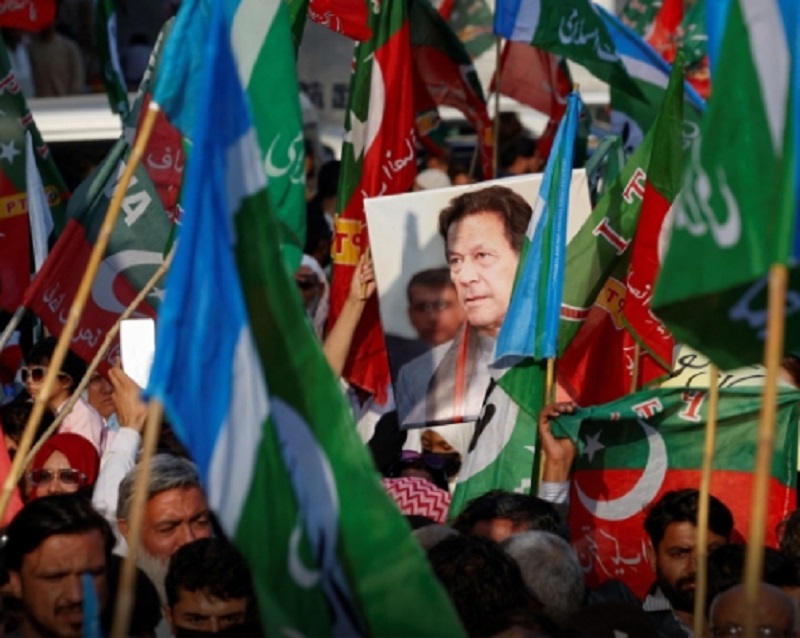Post-election chaos in Islamabad: Khan wins, but Muslim League closer to government
At the end of a disputed count, the candidates close to the jailed former prime minister have a relative majority, but Nawaz Sharif is working on a government coalition that would exclude them. Many fear street violence, while the agreement with the International Monetary Fund must be renegotiated.
Islamabad (AsiaNews/Agencies) – Pakistan’s new parliament has not yet met and it is already in chaos.
Imran Khan, whose party won the largest number of seats even though it was unable to use its symbol, has been forced to "speak" in a message generated by artificial intelligence because he is in prison.
His main rival, three-time Prime Minister Nawaz Sharif, lost at the poll, but is trying to find allies and single MPs to form a government coalition.
After a very slow (and highly contested) counting process, Pakistan finds itself with a fragmented parliament and no clear majority.
About 93 of 101 "independent" MPs elected last Thursday (out of 266 constituencies) are linked to the Pakistan Tehreek-e-Insaf (PTI), Imran Khan's party. With its leader jailed and without the party symbol, the PTI did remarkably well, about 20 seats fewer than in 2018.
Despite the clear support of the military, Nawaz Sharif's Pakistan Muslim League (PML-N) managed to take 75 seats, just a dozen more compared to six years ago (when the vote was held at the height of the Panama Papers scandal).
Bilawal Bhutto's Pakistan Peoples Party came in third with 54 seats.
In terms of regional distribution, Imran Khan's candidates won big in Khyber Pakhtunkhwa, on the border with Afghanistan, but also won many constituencies in Punjab.
Nawaz Sharif's PML-N won mainly in Punjab, while the party of the Bhutto-Zardari dynasty maintained its traditional stronghold in Sindh, securing some seats in Balochistan as well.
Now the distribution of the 70 additional seats that Pakistani electoral law reserves for women (60) and minorities (10) will become very important.
They are usually divided proportionally according to the votes received by each party. But "independents" are excluded from the count; heavily skewing the final seat distribution.
It should also be noted that elected representatives still have three days to decide which party they want to join in the National Assembly.
Sharif's PML-N is claiming that six elected MPs have joined its ranks (including one backed by the PTI). Yet, PTI-backed independents might try to join a smaller party that won only one seat. This would enable the party to share women’s and minority seats.
A government will have to be formed by 29 February, when the new parliament is set to convene for the first time. Despite its disappointing results, the PML-N remains the favourite to form a cabinet.
Nawaz Sharif has already reached out to the Pakistan Peoples Party to ensure that MPs linked to Imran Khan remain in the opposition.
Sharif would not necessarily become prime minister, but he might secure a majority with the support of a third party, the Muttahida Qaumi Movement, very strong in Karachi, which won 17 seats.
It is highly unlikely, however, that the PTI, with the largest number of seats amid charges of fraud, would passively accept being shut out of power.
This might lead to street violence in a country bedevilled by serious economic problems – in March, Pakistan will have to renegotiate a deal with International Monetary Fund that allowed it to avoid defaulting.
For the country, a weak government facing widespread protests would be the worst possible scenario.
29/02/2024 20:15
26/07/2018 18:39







.png)










